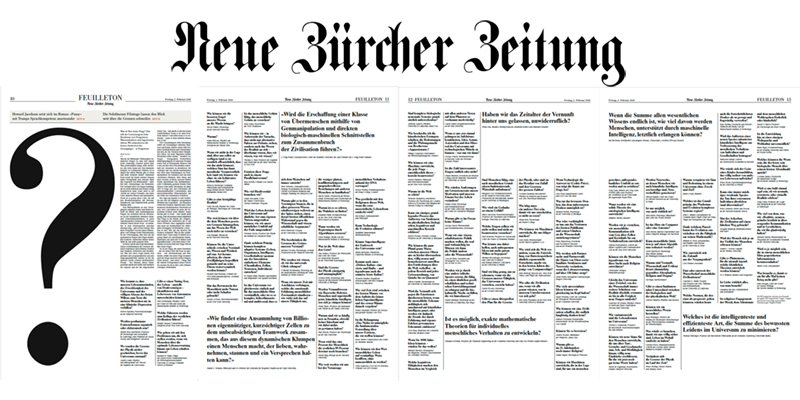Edge Questions
Edge Questions
By René Scheu 2.2.2018
In their laboratories and experimental systems, the boundaries between discovery and invention, thinking and acting, designing and realizing become blurred. What is frightening to some – because suddenly everything seems programmable and thus reprogrammable – is a source of pure intellectual joy to others: man, this creature of nature, makes himself the creator of his own nature and nature around him. Yet – what exactly is he doing with his new magic powers? Can he keep them under control? And even if he does, can he really know what he's doing?
Literary agent John Brockman, himself a border crosser between business and the arts, has long been rallying researchers, thought acrobats and entrepreneurs who tease the boundaries of their disciplines. Brockman described his own virtues – courageously – as embarrassment, confusion and the will to question and contradict. He and his friends met in restaurants, museums and lofts to discuss their findings outside academe. Their concern was a profoundly Kantian one, but with the difference that speculation, explicitly, should be allowed: they dealt with the "starry sky" above them and the "law" in them. Nothing should, could, be safe from human knowledge.
Stephen Jay Gould attended the first meetings, as did Isaac Asimov, John Searle, Daniel Hillis. The meetings eventually became a semi-institutional community called the Reality Club. Brockman changed the club’s name in 1997 to Edge, the cyberspace for science-savvy entrepreneurs and entrepreneurial scientists at the height of the technological age.
The last question
Without a doubt, edge.org is one of the brightest, most stimulating websites today – visitors experience the thinking, actions and lives of modern intellectual adventurers in actu. The pleasure factor is great, as is the gain in knowledge. Every month there is news – but that's not all. Every year John Brockman sends a question out to the "Edgies" and makes the answers accessible on his website; afterward he publishes them in an anthology for bibliophiles. Life – what is it? How is the internet changing the way you think? What is your dangerous idea? Now, after 20 years, the American cultural impresario, who still looks young at the age of 76, has decided that enough is enough. And he asks his community one last question: what's your last question?
It is a question to inspire the individual – to quote Kant one last time – with "admiration and awe." The last question is always a question about last things. These last – and first – things are the true protagonists of the following pages. They will pursue you into your dreams and nightmares. Hopefully.

